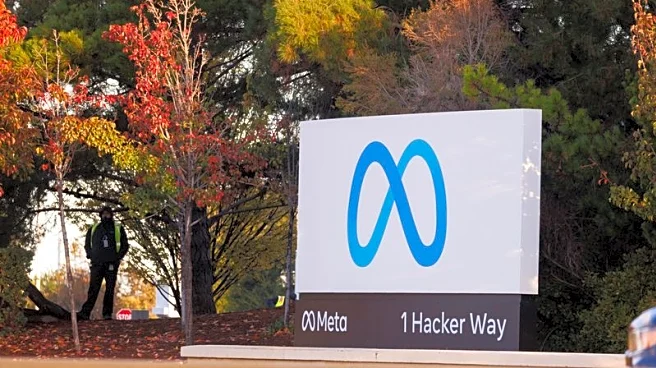What's Happening?
Tempo, a blockchain initiative developed by Stripe and Paradigm, has secured $500 million in Series A funding led by Greenoaks and Thrive Capital. The funding round values Tempo at $5 billion, marking
one of the largest blockchain venture rounds in recent years. Tempo aims to establish stablecoins as a new infrastructure layer for global payments, with design partners including OpenAI, Shopify, and Visa. Stripe has been actively expanding its stablecoin-related offerings, including Open Issuance, which allows customers to launch their own stablecoins. The initiative is part of Stripe's broader strategy to compete with established blockchains like Ethereum and Solana.
Why It's Important?
The substantial investment in Tempo underscores the growing interest in stablecoins as a key component of the global financial system. By attracting major venture firms like Greenoaks and Thrive Capital, Tempo is positioned to challenge existing stablecoin companies such as Circle and Tether, and potentially disrupt traditional payment systems like Mastercard. The involvement of Stripe, a major fintech player, highlights the mainstream acceptance of blockchain technology and its potential to reshape payment infrastructures. This development could lead to increased adoption of stablecoins, influencing financial transactions and regulatory frameworks.
What's Next?
Tempo's future plans include competing with established blockchains and potentially launching its own crypto token. The company aims to remain stablecoin agnostic, allowing various tokens to be used for transaction fees. As Stripe continues to expand its blockchain initiatives, the industry may see further integration of stablecoins into mainstream financial services. The success of Tempo could prompt other financial firms to explore blockchain technology, leading to increased innovation and competition in the sector.
Beyond the Headlines
The rise of stablecoins and blockchain technology raises questions about regulatory oversight and the potential impact on traditional banking systems. As stablecoins become more integrated into global payments, issues such as security, transparency, and compliance will become increasingly important. The collaboration between fintech companies and blockchain ventures may drive advancements in digital identity and ownership standards, influencing the broader digital economy.










